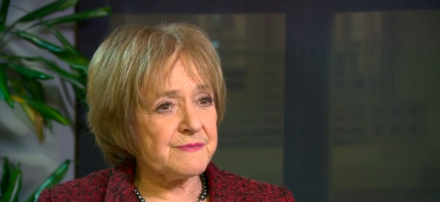
Last night the Labour Party dropped its disciplinary probe into MP Margaret Hodge, who had been placed under investigation after calling Jeremy Corbyn “a racist and an antisemite”. She had done so on the day that the party’s ruling body, the NEC, approved a controversial new code of conduct outlining what behaviour by Labour members would be considered antisemitic. Critics including Hodge and parliamentary colleague Ian Austin, who is still under investigation, say it didn’t include several key working examples from the International Holocaust Remembrance Alliance (IHRA) definition of antisemitism.
This is what sparked Labour’s latest flare-up of its antisemitism problem, which started over a month ago. The decision taken last night was an effort to pour a little cold water on the rows and stop Labour MPs from quitting the party in protest. But it only aggravated the situation.
The move infuriated some Corbynites, while pleasing others. Matt Zarb-Cousin, a former spokesperson for Corbyn and a leading Corbynite, said it was the “correct decision”. Yet Novara Media editor Aaron Bastani, another Corbynite often invited to defend the leader’s office on politics programmes, led criticism. A split has emerged, as the two had already disagreed over the demands for Tom Watson’s resignation on Sunday evening.
“How can you have any confidence in the disciplinary processes of a major civil society organisation if they drop cases at the behest of the media?” tweeted Bastani. “If rules are now just about political expediency let’s pack up our things and hand Labour back over to the neoliberals.” Others joined in, describing the termination of proceedings as “politicisation of party disciplinary processes”.
That was the backlash amongst Corbyn supporters. Then came the public disagreement between Hodge and the party over what caused the investigation to be junked. Labour briefed that the MP had verbally “expressed regret” for the way in which her criticisms of Corbyn were communicated, but Hodge denied anything of the sort.
Just to be clear: there have been no apologies – on either side
— Margaret Hodge (@margarethodge) August 6, 2018
What does this tell us? Corbyn is making slow progress in dealing with the antisemitism row. On Friday, he offered an op-ed. Sunday gifted a video. Monday saw the party pull back on the Hodge aspect of this all-consuming row. Every day or two, another concession is made – but Labour’s inch-by-inch pace satisfies nobody, neither Corbynites nor Corbynsceptics. If Corbyn wishes to prevent the scandal from dominating the entire summer, and eventually splitting the parliamentary party in the autumn, he must take bold and definitive action. That starts with copying all the IHRA working examples and pasting them into Labour’s antisemitism guidelines.
The fundamental problem is that Corbyn can’t do that: he simply doesn’t agree with one of the examples. According to the IHRA, asserting that “the existence of a state of Israel is a racist endeavour” is antisemitic. The Labour leader, as made clear in the Observer piece, believes codifying this would restrict legitimate criticism of Israel. NEC member Ann Black says “only Jeremy can break the deadlock”. But the Labour leader won’t break it, and the story looks set to run and run.




More from LabourList
A year in power: The cabinet on their proudest wins and favourite moments
‘One year on, Labour still hasn’t reckoned with collapsing trust in politics’
‘I’m the Labour MP who beat Liz Truss. Here’s how the campaign to unseat her unfolded’